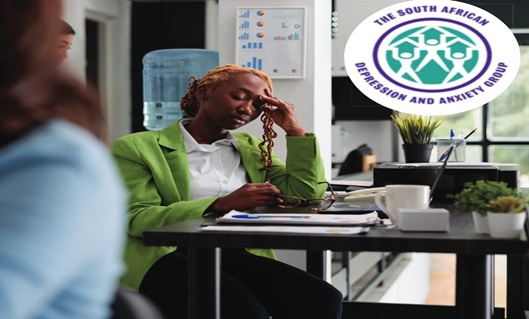Department of Community Safety 2024/09/04 - 22:00

Cleopatra Ntshingila and Modjadji Matsapola
In 2023, South Africa was ranked as one of the most unhappy and distressed nations (2023 Mental State of the World Report), largely due to its mental health crisis, especially among women. More than half of South Africa’s population is female (Stats SA, 2022), and Mayer et al. (2019) discovered that South African women are almost 1.75 times more likely to be diagnosed with a depressive disorder than men. Women between the ages of 16 and 24 are nearly three times more likely (26%) to experience a common mental health issue, such as anxiety, than males of the same age (9%).
The above statistics imply that although democracy has brought freedom and opportunities to women, it has also introduced challenges. The changing roles and pursuit of gender equality increase pressure on women, thus affecting their mental health. Women now occupy roles that were previously reserved for men, have platforms to voice their concerns, and are involved in decision-making and leadership roles. In an interview with Ms Boitumelo Medupe (Assistant Director of Human Resource Management) regarding women's challenges, she said, “Most women go through relationship challenges. They are normally primary caregivers or economic contributors in the household. They also carry the burden of having to prove themselves in the workplace, especially if the field is male-dominated.”
Sexual harassment, workplace discrimination, and gender-based violence—which has become a pandemic in South Africa—are among the challenges women face. Schools are supposed to offer a safe environment for young women to learn and express themselves freely; however, bullying, peer pressure, and alcohol and drug abuse have taken over and are negatively impacting their mental well-being.
“In addition to academic pressure, future uncertainty, identity, and self-discovery, which affect all pupils, most teenage girls struggle with body image and appearance, comparison traps, statutory rape, and teenage pregnancy,” said Mrs Mogale (Principal at Kgotloana Primary School). “Although topics such as rape, body development changes, and substance abuse are incorporated into the education system, teenage girls still struggle to adjust to these changes,” she added. According to the Gauteng Department of Health, in this current financial year, over 13,700 babies were born to teenage mothers across public health facilities in the province. This reveals how alarming teenage pregnancy is in Gauteng and across South Africa.
When interviewed about women and mental health, Ms Boitumelo Medupe stated, “I think it should be prioritised, but it’s not, due to the pressures that women often have to operate within. You would find a woman who is a mother, a breadwinner, and a manager. All these roles have demands on her, and she is not necessarily getting support from anywhere. She is afraid of failing because that failure would become her identity.”
Ms Boitumelo Medupe also mentioned that the role played by African culture in women’s mental health can be either positive or negative, depending on the situation. “Some cultural practices, especially those that encourage social support or cohesion, positively affect mental health. For example, a married woman would be encouraged to escalate issues with her in-laws or the ‘delegated authority’ in the family to solve the challenges she might be facing. Adversely, the very culture might discourage such escalation, emphasising the need to hide emotions so that ‘your dirty laundry is not aired in public.’ Some cultures believe that a child belongs to the family, which might serve as a buffer to a single parent. Thus, different standards affect mental health differently, and it is not always negative,” she said.
“Society normally presents picture-perfect people, and as such, if a person has a mental wellness issue, they might be ostracised or stigmatised. This is a sure way to hamper disclosures and treatment of mental conditions. In many cases, after a woman has given birth, it is expected that she will be there for her child, sometimes without any support. If she is unable to look after the baby because of postpartum depression (PPD), she might be considered lazy or lacking motherly care or instincts,” Ms Boitumelo added. Society expects women to be employed, get married, and have children by a certain age, and this adds pressure, which may lead to depression, especially when those expectations are not met.
In conclusion, self-care is paramount. Normalise counselling and talk therapy, resolve issues as quickly as possible, listen to your body, and develop and nurture supportive relationships. Prioritise yourself. If you are in relationships that don’t serve you, leave that table, set boundaries, and enforce them. Simple things like exercising regularly, maintaining a healthy diet, getting enough sleep, surrounding ourselves with positive people, practising positive self-affirmations, and rewarding and spoiling ourselves can give women a significant mental boost. Remember, seek and you shall find. Don’t wait until it’s too late. Reach out for help when you feel like the whole world is on your shoulders.
South African Depression and Anxiety Group (SADAG)
011 234 4837
Suicide Crisis Helpline
0800 567 567
Department of Social Development Substance Abuse Helpline
0800 12 13 14
SMS 32312
Cipla Mental Health Helpline
0800 456 789
SMS 31393
RELATED NEWS
No related news

